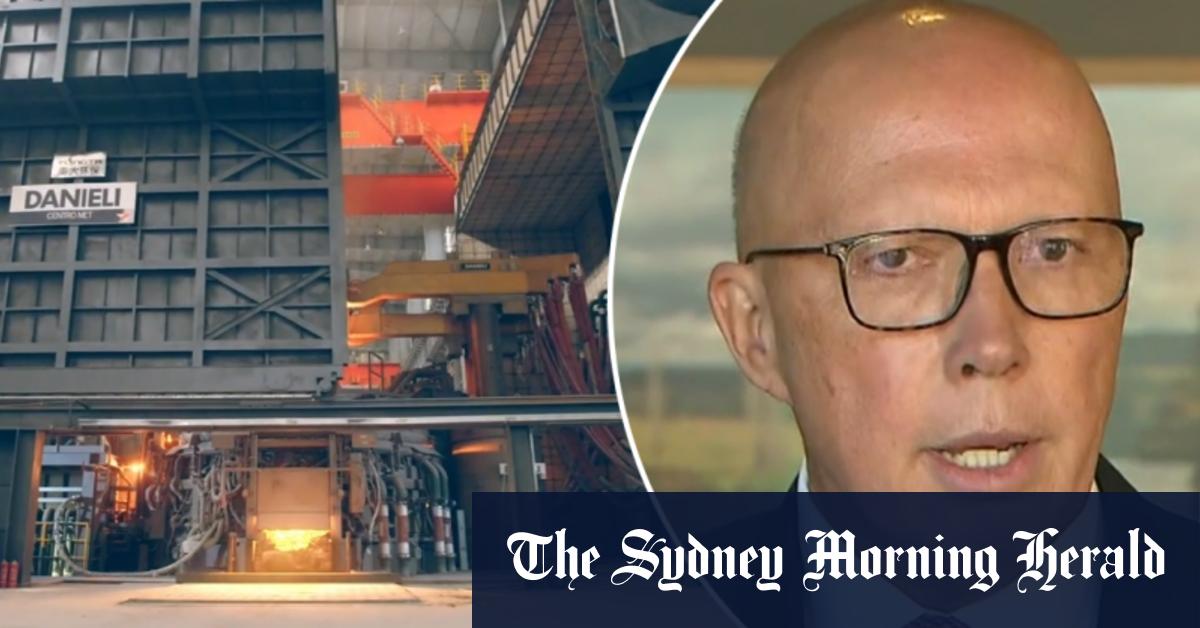Australia
Dutton promises to honours Whyalla rescue funding

A Pledge with a Purpose: Dutton’s Promise to Whyalla
In the ever-evolving landscape of Australian politics, one recent announcement has captured the attention of both policymakers and the general public. Peter Dutton, the current Opposition Leader, has made a significant pledge regarding the Whyalla rescue package. This commitment, if upheld, could have far-reaching implications for the future of Whyalla, a town in South Australia known for its rich industrial heritage. Dutton’s promise, however, comes with a notable condition: none of the funding allocated to the rescue package should be directed towards preparing for hydrogen power. This stance has sparked a mix of reactions, ranging from cautious optimism to outright criticism, as the nation grapples with the balance between economic survival and environmental sustainability.
Dutton’s Promise: Honouring the Whyalla Rescue Package
At the heart of Dutton’s pledge is a commitment to honour the Whyalla rescue package should he be elected. This package, designed to support the town’s economic recovery and industrial viability, is seen as a lifeline for a community that has faced significant challenges in recent years. Whyalla, once a thriving steel hub, has struggled with economic downturns and the decline of traditional industries. The rescue package, therefore, represents a beacon of hope for its residents, offering the potential for renewed economic activity and job creation.
A Condition with Controversy: No Funding for Hydrogen Power
While Dutton’s pledge to honour the rescue package has been welcomed by many, his condition that none of the funding should be allocated to hydrogen power preparations has ignited debate. Hydrogen power, particularly green hydrogen, is increasingly seen as a key component of Australia’s future energy strategy. It is viewed as a cleaner alternative to fossil fuels and a potential driver of economic growth in regions rich in renewable energy resources. By excluding hydrogen power from the rescue package, Dutton’s announcement has raised questions about the balance between short-term economic stabilisation and long-term sustainability.
Whyalla’s Stake in the Debate
For the people of Whyalla, the stakes in this debate are high. The town’s economic fortunes have long been tied to heavy industry, and the decline of these sectors has left many searching for new opportunities. The rescue package, with its focus on economic recovery, offers a much-needed injection of funds to support local businesses and create jobs. However, the exclusion of hydrogen power from the funding raises concerns about whether Whyalla is being adequately positioned to thrive in a future increasingly dominated by renewable energy.
Political Considerations: Dutton’s Strategy
Dutton’s announcement must also be viewed through the lens of political strategy. As the leader of the opposition, his pledge to honour the rescue package is a clear attempt to win the support of Whyalla’s residents and businesses. By aligning himself with the town’s economic recovery, Dutton seeks to present himself as a leader who understands and is committed to the needs of regional Australia. At the same time, his condition on hydrogen power funding reflects a broader political narrative that often pits economic stability against environmental progress.
Reactions and Implications
Reactions to Dutton’s announcement have been varied. Supporters argue that the priority must be on immediate economic recovery, and that any diversification into new industries, such as hydrogen power, should come after the town’s economic foundations are secure. Critics, on the other hand, warn that excluding hydrogen power from the rescue package could leave Whyalla behind in the transition to a low-carbon economy. They argue that investments in hydrogen infrastructure could not only create jobs but also position the town as a leader in the renewable energy sector.
As the debate continues, one thing is clear: the future of Whyalla, and indeed of many regional Australian towns, will be shaped by decisions made today about how to balance economic recovery with long-term sustainability. Dutton’s pledge to honour the rescue package, while welcome, serves as a reminder of the complex trade-offs that must be navigated in pursuit of a prosperous and sustainable future.











